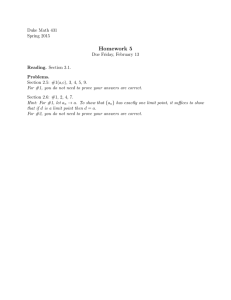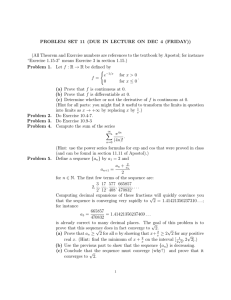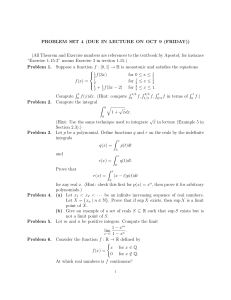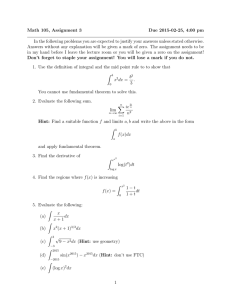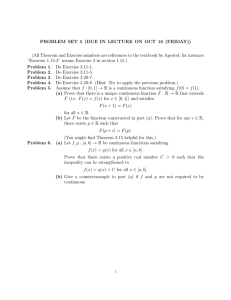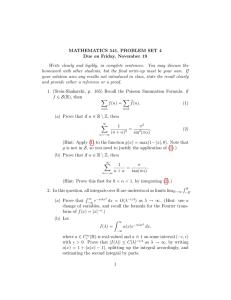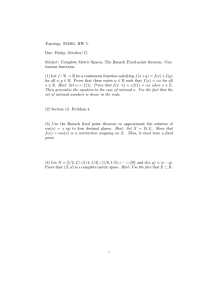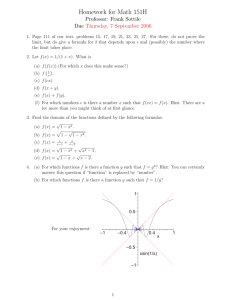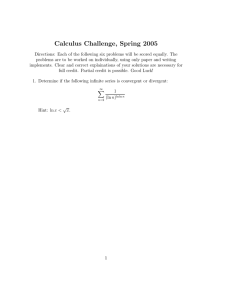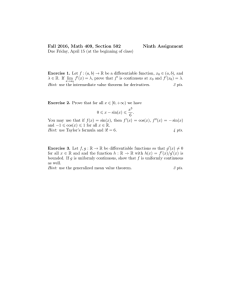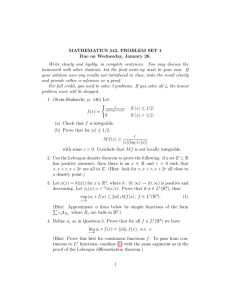PROBLEM SET 7 (DUE IN LECTURE ON OCT 29 (THURSDAY))
advertisement
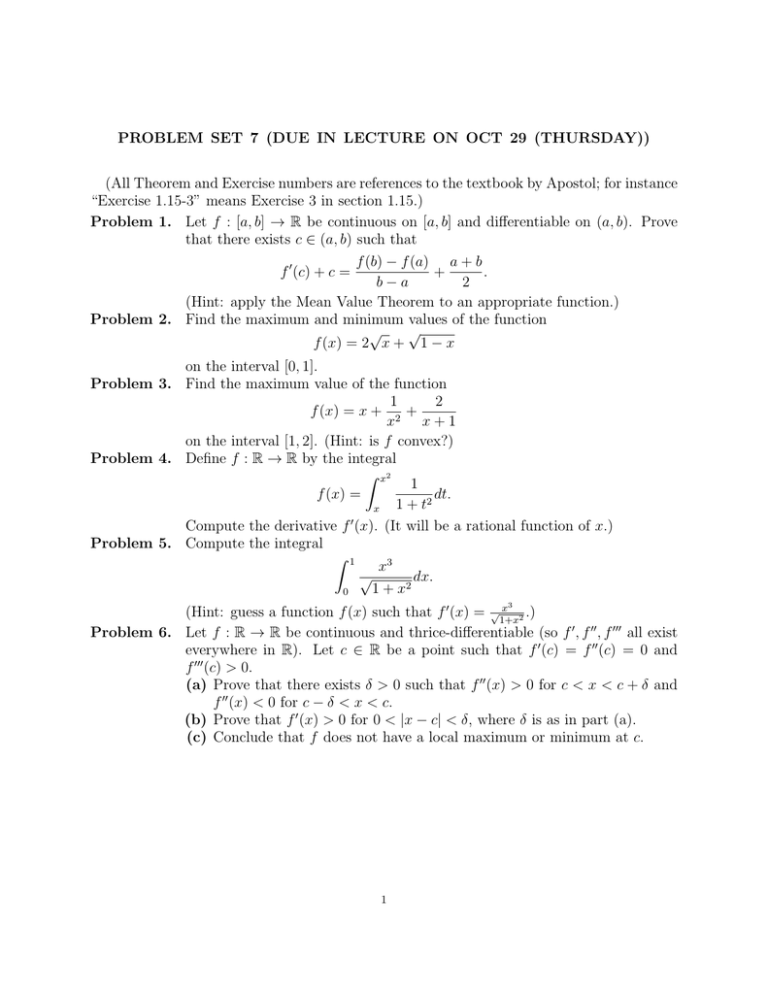
PROBLEM SET 7 (DUE IN LECTURE ON OCT 29 (THURSDAY)) (All Theorem and Exercise numbers are references to the textbook by Apostol; for instance “Exercise 1.15-3” means Exercise 3 in section 1.15.) Problem 1. Let f : [a, b] → R be continuous on [a, b] and differentiable on (a, b). Prove that there exists c ∈ (a, b) such that f (b) − f (a) a + b + . f 0 (c) + c = b−a 2 (Hint: apply the Mean Value Theorem to an appropriate function.) Problem 2. Find the maximum and minimum values of the function √ √ f (x) = 2 x + 1 − x on the interval [0, 1]. Problem 3. Find the maximum value of the function 2 1 f (x) = x + 2 + x x+1 on the interval [1, 2]. (Hint: is f convex?) Problem 4. Define f : R → R by the integral Z x2 1 f (x) = dt. 1 + t2 x Compute the derivative f 0 (x). (It will be a rational function of x.) Problem 5. Compute the integral Z 1 x3 √ dx. 1 + x2 0 3 x (Hint: guess a function f (x) such that f 0 (x) = √1+x 2 .) Problem 6. Let f : R → R be continuous and thrice-differentiable (so f 0 , f 00 , f 000 all exist everywhere in R). Let c ∈ R be a point such that f 0 (c) = f 00 (c) = 0 and f 000 (c) > 0. (a) Prove that there exists δ > 0 such that f 00 (x) > 0 for c < x < c + δ and f 00 (x) < 0 for c − δ < x < c. (b) Prove that f 0 (x) > 0 for 0 < |x − c| < δ, where δ is as in part (a). (c) Conclude that f does not have a local maximum or minimum at c. 1
